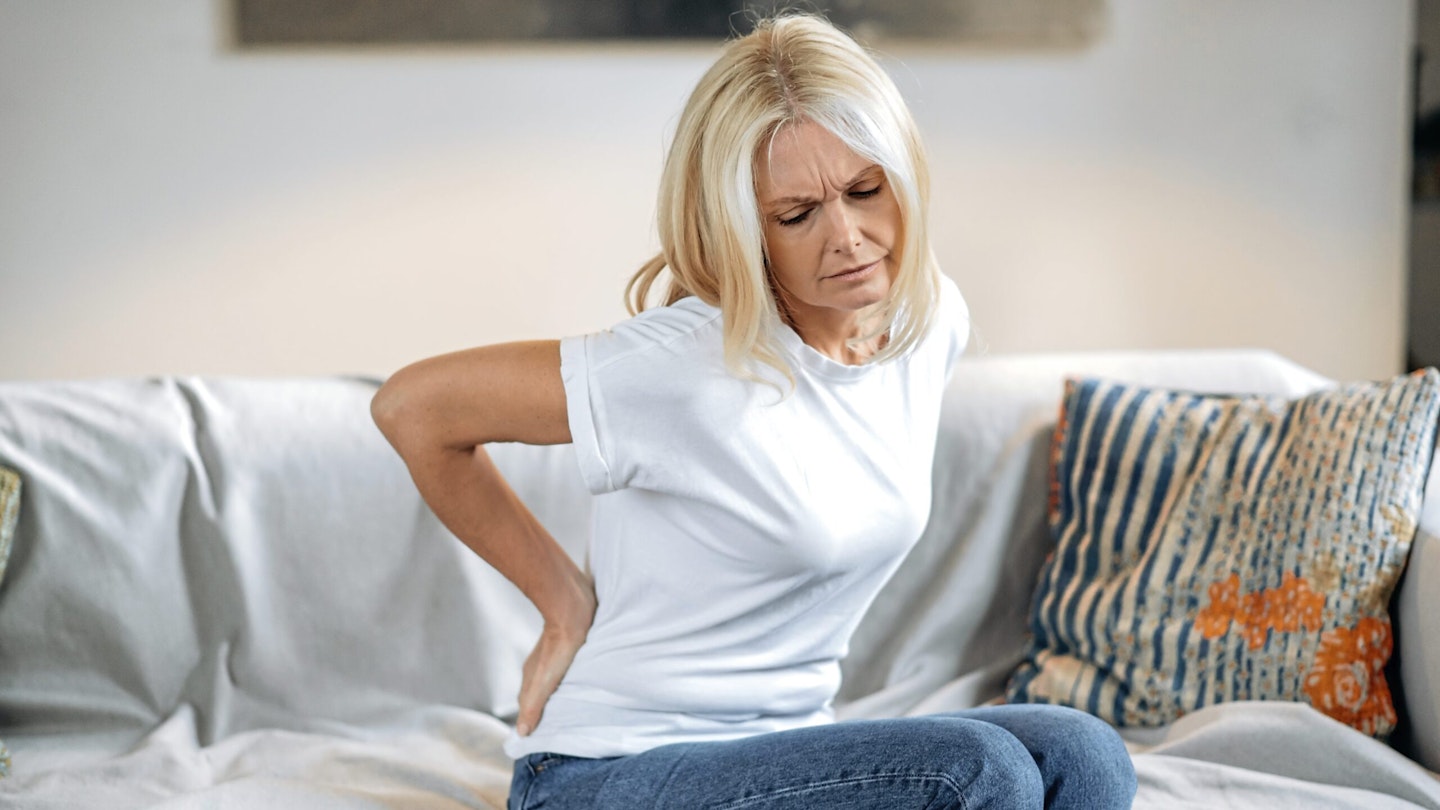Expert ways to ease the aches, and feel happier too
When it comes to menopause, we know there is a raft of symptoms. One of the most common is joint pain.
In fact, 71 per cent of perimenopausal and menopausal women experience musculoskeletal pain.
And while the physical impact is obvious, a new survey indicates that prolonged pain and discomfort can also have a profound effect on mental and emotional well-being.
Research by GOPO Joint Health found that almost three-quarters of sufferers have experienced anxiety or depression. And ongoing pain impacts relationships — with one-in-five avoiding intimacy with their partner, and one-in-10 losing friends.
Another report, published by the muscle and joint care experts at Deep Heat, Deep Freeze and Deep Relief, found that 65 per cent of us say our mood is worsened by pain, with three-quarters admitting to feeling frustrated, unhappy or grumpy.
NHS doctor and author of Live Well to 101, Dr Dawn Harper, says: ‘The ongoing nature of joint pain can be emotionally and physically taxing, and sufferers can become withdrawn. Chronic or persistent pain can impact a person’s physical capabilities, ability to work and their relationships with loved ones.
‘Over time, these lifestyle restrictions can affect sufferers’ mental and emotional health. It’s important to find self-management strategies.’
Luckily, there are ways to prevent and ease muscle and joint health pain, so we can get back to feeling good, and be able to move and live comfortably.
Here, the experts explore how…
Be tactical with temperatures
Elyn Marwick, personal trainer, functional fitness coach and competitor, recommends practising PRICE — protect, rest, ice, compress and elevate.
She says: ‘Cooling therapy can decrease blood flow, and may help calm minor aches in muscles and joints. Try Deep Freeze Glide-on Gel, which provides fast-acting cooling and non-medicinal soothing relief, and can be used alongside oral analgesics.’
After 72 hours, once swelling and inflammation have subsided, Elyn recommends warming products to increase blood flow and help promote healing.
Sammy Margo, physiotherapist and advisor to Deep Heat, Deep Freeze and Deep Relief, adds: ‘Heat therapy helps to increase blood supply to relax aching and overstretched muscles, re-oxygenating the tissues to help stimulate the natural healing process.’
Check your posture
Chris Ruxton, personal trainer, functional fitness coach and competitor, says: ‘When working, sit upright on a comfortable chair with feet flat on the floor. Forearms should rest at a comfortable height on a table, with your laptop or screen at eye level, to avoid any neck pain.
‘When you’re on the move, walk with your shoulders back, and try not to slouch over. Try not to walk while looking down at your phone.’
Find yourself sitting down for long periods of time? Break up these periods and stand, as recommended by experts in the British Journal of Sports Medicine. Aim for two hours of standing or light activity every working day, building up to four hours a day.
Watch your diet
To reduce inflammation — the main cause of pain — as well as improve stiffness in joints, include at least five colourful fruits and vegetables a day, a weekly serving of oily fish, a daily serving of nuts and seeds, and use healthy cooking oils like olive oil.
Sammy says: ‘Although these might seem like minor tweaks, they can have a big impact, helping to prevent muscle and health challenges and overcome discomfort that is getting in the way of our life.’
Talk about it
Dr Dawn says: ‘It can be difficult for friends and family to feel connected when someone is dealing with chronic or persistent pain, but it’s important not to hide your pain. Communicating your symptoms, and the way pain affects your life with family and friends, can help them understand how to support you.
‘If you’re avoiding physical intimacy, have an open conversation with your partner, and explain what they can do to make things easier for you. Their acceptance and understanding may also help you better handle the challenges of everyday life.’
